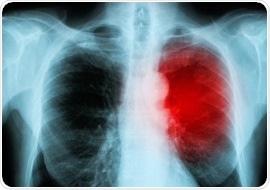Immunotherapy is a powerful weapon in the fight against cancer, but inflammation of the heart muscle (myocarditis) is one of its most serious side effects. This has been highlighted in a review article on the immunological causes and processes of myocarditis, which has just been published by an international research team. Autoimmune reactions are in fact among the most common causes of myocarditis. And such reactions can be triggered by cancer immunotherapies due to their specific modes of action. The increasing use of these treatments could therefore lead to an increase in cases of myocarditis.

Image Credit: AdobeStock
Inflammation of the heart muscle is extremely dangerous, but often remains undetected due to a lack of simple diagnostic options. Although the inflammation is often caused by infections, autoimmune responses are also a common trigger. A team of experts from Karl Landsteiner University of Health Sciences in Krems (KL Krems), Charité university hospital in Berlin and Columbia University in New York have now summarized the latest findings on the immunological processes underlying myocarditis in a review article, in which they identified cancer immunotherapy as a trigger of the disease. The success of cancer immunotherapy means that it is becoming an increasingly common treatment, which in the authors’ view will go hand in hand with an increase in myocarditis.
Loss of control
Generally speaking, immunotherapies represent a new and sometimes very effective treatment option for certain forms of cancer. Activation of the patient’s immune system in order to eliminate the cancer cells is central to the functioning of all of these therapies.
Immune-checkpoint inhibition is a specific form of such treatment. You can picture it like switching off certain brakes that slow down the immune system. This helps the immune system to attack the cancer cells more effectively, but in some circumstances it may also target the patient’s healthy tissue. In other words, it can prompt autoimmune reactions.”
Dr. Klaus Hackner of KL Krems, Co-author of the article and a consultant at Krems University Hospital
Current Immune-checkpoint Inhibitor cancer immunotherapies use antibodies to block and alter the function of specific cancer and immune cell structures. The review article summarizes the latest knowledge about how this can lead to inflammation of the heart muscle in a process which involves complex interactions with different components of the immune system.
Acceleration and braking
Options for treating myocarditis triggered by autoimmune responses include immune suppression and immune modulation. For the treatment of cancer patients who are receiving immunotherapy, the authors draw parallels with organ rejections after transplants, and with rheumatic disorders. These can be treated effectively using immunosuppressives. The article contains many examples of how these drugs are used to treat myocarditis associated with cancer immunotherapy.
This brings about the seemingly paradoxical situation that the immune system is being activated to fight the cancer, while simultaneously being inhibited to treat the myocarditis. But our improved understanding of the specific immune reactions involved means that it is possible to manipulate the immune system extremely precisely to accomplish both of these objectives.”
Dr. Gudrun Kreye, Article’s co-author, Consultant at Krems University Hospital
In this context, the recently published review article on the current state of knowledge regarding the immunopathology of myocarditis will be of great practical use. The article also highlights how KL Krems’ oncological research activities focus strongly on direct clinical benefits for patients.
Source:
Journal reference:
Bruestle, K.., et al. (2020) Autoimmunity in Acute Myocarditis: How Immunopathogenesis Steers New Directions for Diagnosis and Treatment. Current Cardiology Reports. doi.org/10.1007/s11886-020-01278-1.